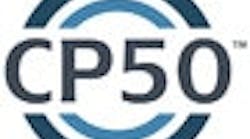You can't squeeze blood from a turnip, but you can squeeze glue from a potato, according to the Netherlands-based AkzoNobel Chemicals, manufacturer of paints, coatings and specialty chemicals.
The ongoing search for adhesives with a greener environmental profile has led to the development of systems based on renewable resources, including starch.
The need for an alternative solution has largely been brought about by health and safety concerns over certain compounds contained in adhesives – mainly formaldehyde and Volatile Organic Compounds (VOCs).
AkzoNobel Industrial Finishes — through its Sweden-based Casco Adhesives subsidiary, which is a major supplier of wood adhesives to laminated beam producers and the furniture and flooring industries —has been working to harness the known adhesive potential of renewable resources such as starches and soybeans and combine them with innovative but safe chemistry to create a system that meets customer needs.
During development of bio-adhesives, AkzoNobel has focused heavily on ensuring that the eco-friendly profile holds all the way from the raw material source to the production of the adhesives themselves to the workers’ environment and finally to the ultimate application — furniture or cupboards.
Various adhesives have already been extensively tested in different applications — including furniture and particle board — with encouraging results. A number of large-scale trials also are planned for 2009.
In other adhesives news, Casco recently received approval for its new super-fast melamine system for constructive wood lamination. Applications include laminated beams, duo and trio beams, solid wood lamination, wall elements and cross-laminated timber.
The system boasts a fast pressing time of about 30 minutes at ambient temperature; it also offers a short after-curing time of 3 hours at 20°C and low formaldehyde emission, according to Casco.
AkzoNobel is constantly on the lookout for groundbreaking developments, and long has recognized pioneering research. In fact, for nearly 40 years AkzoNobel has presented Science Awards to researchers. The award alternates between Sweden and the Netherlands and has been presented in the Netherlands since 1970 and in Sweden since 1999.
Last month AkzoNobel bestowed the awards on two Swedish professors, Carl Borrebaeck and Thomas Laurell.
Professor Borrebaeck was recognized for his research into antibody engineering for the generation of human antibodies as biological pharmaceuticals useful for human therapy. Professor Laurell — one of the pioneers of the “lab-on-a-chip” technology — was honored for his research into new microchip technologies in the area of biomedicine, biochemistry and nanobiotechnology, with a focus on nanoproteomics, which is the handling and preparation of proteomic samples in the nanolitre to picolitre domain.
Borrebaeck is a professor in the Department of Immunotechnology at Lund University, Lund, Sweden. His research has made it possible to design microarrays enabling the diagnosis of complex diseases, such as cancer.
Laurell is a professor in the Department of Measurement Technology and Industrial Electrical Engineering, Division of Nanobiotechnology, at Lund University. His research has helped advance lab-on-a-chip technology to detect extremely low levels of substances and other biomarkers that correlate to diseases. In addition, he has conducted groundbreaking work on the separation of different blood components and types of cells using a unique ultrasonic method.
AkzoNobel Chemicals is a CP 50 company. To view the AkzoNobel Chemicals profile, visit: http://www.chemicalprocessing.com/cp50/2008/akzonobel_chemicals.html.
To view the entire CP 50 list, visit: http://www.chemicalprocessing.com/cp50.
